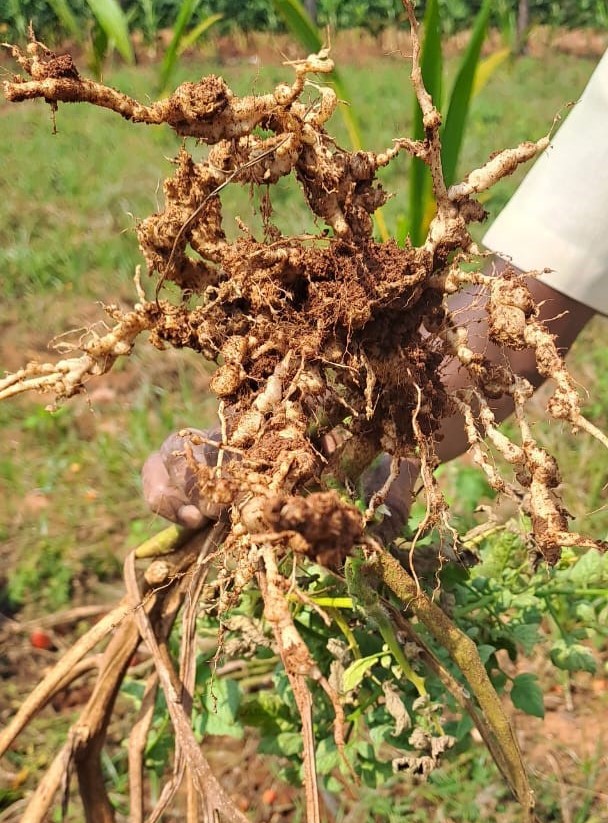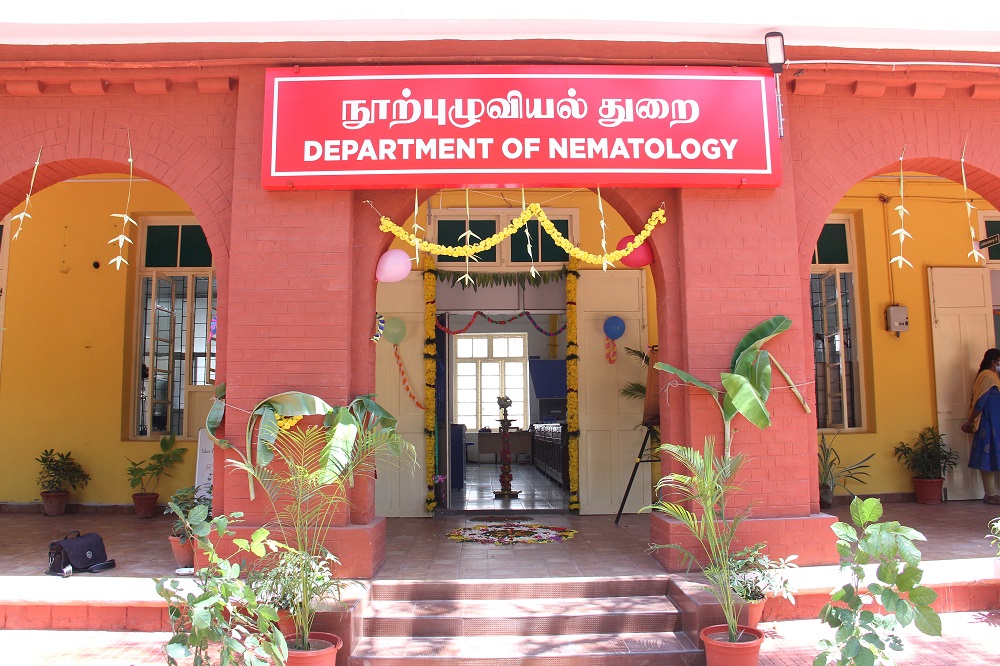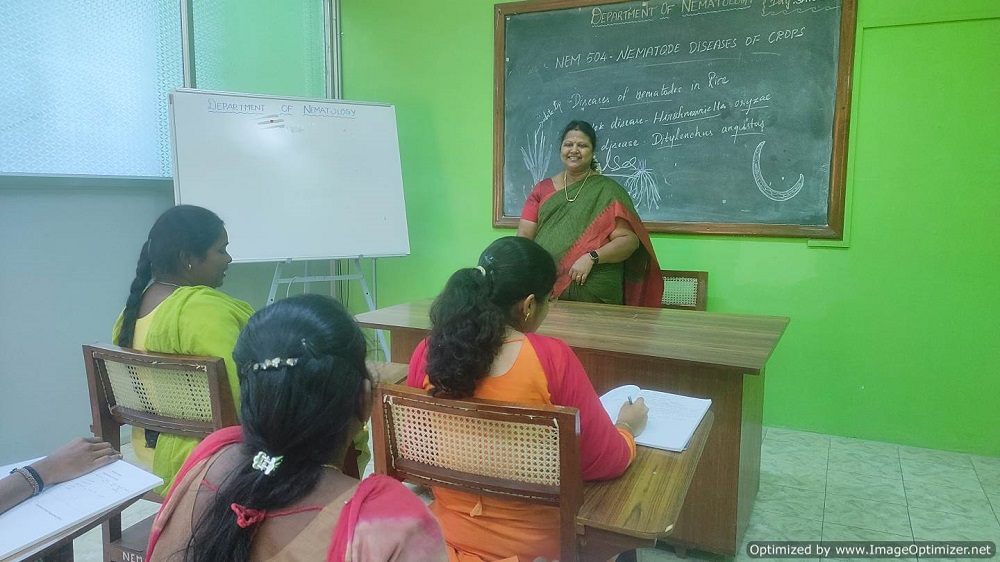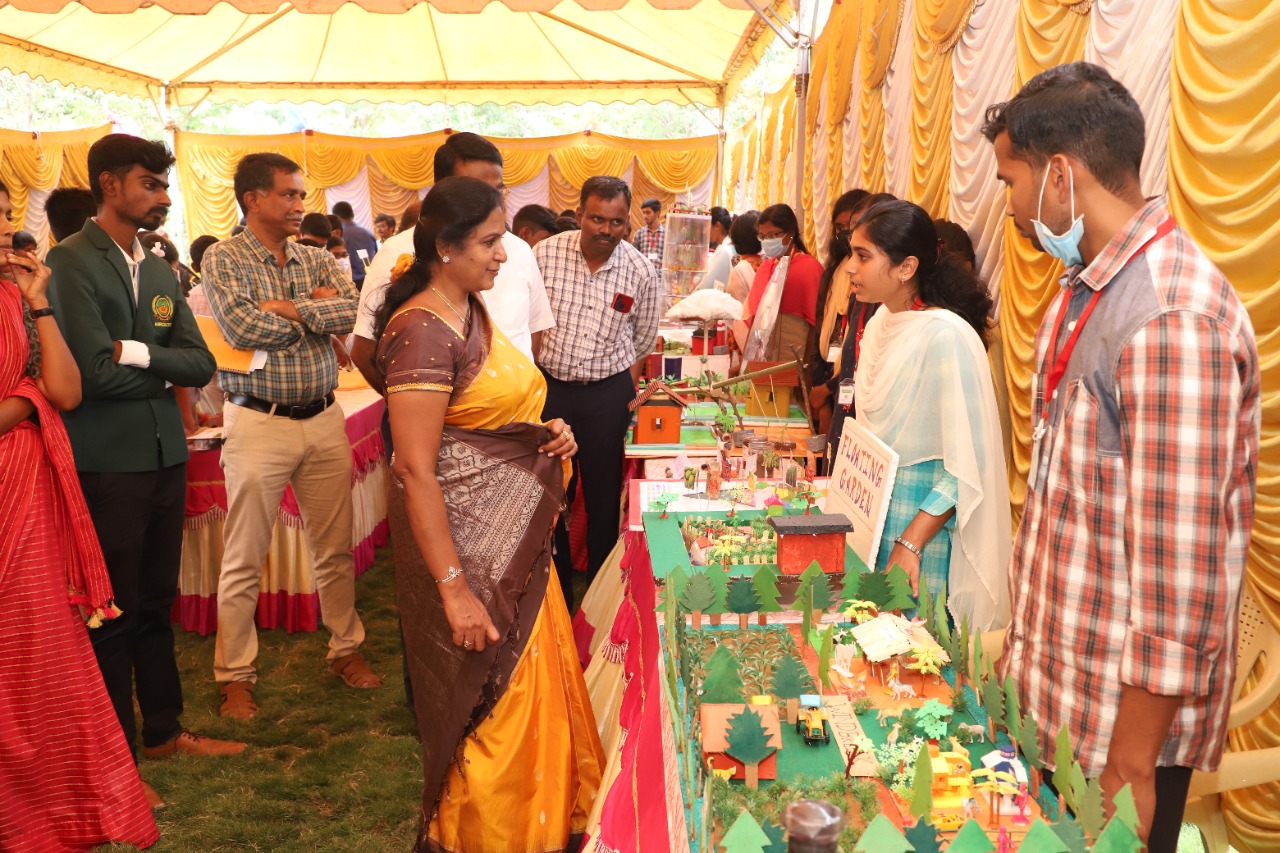The Tamil Nadu Agricultural University (TNAU) had its genesis from establishment of an Agricultural School at Saidapet, Madras, Tamil Nadu, as early as 1868 and it was later relocated at Coimbatore.
Get in touch
- info@tnau.ac.in
- 0422 6611200
- Monday to Friday: 9am to 5pm

Ph.D. Plant Nematology
Prelude
The scientific field of Nematology focus on the investigation of nematodes or roundworms. Since, it is a well-established field, nematology encompass a wide range of topics from the most fundamental to the most cutting-edge and practical. Students in the Doctoral programme will gain knowledge on the evolution of plant-parasitic nematodes, the effects of plant-parasitic nematodes on crops and use of beneficial rhizosphere microorganisms for nematode control. They will also learn how to identify resistance in nematode genomes and develop novel methods for diagnosing pathogenic nematodes using various modern molecular techniques. In addition to basic techniques in traditional research, biodiversity analysis, and xenic and axenic cultures.
Tamil Nadu is the first state in the country to realize the importance of nematodes and establish first laboratory in 1961 at TNAU Coimbatore. Later in 1979 separate Department of Nematology was established and PG programme was started. Ph.D programme was started in the year 1990.TNAU offers a two-year full-time Doctorate programme. The course must also be completed within three years.

Why this programme?
- Advances in Physiological and Molecular approaches between host and plant parasitic nematodes.
- Advances in Nematode taxonomy
- Advances in biological control and Molecular Nematology
Study Programme
The Doctoral programme in Plant Nematology has been designed following the UGC guidelines. The course imparts:
- To advance knowledge in biodiversity and host interactions of nematodes
- To develop latest technology for the management of nematodes
- To develop eco friendly management practices for pests using entomopathogenic nematodes
- To develop Integrated Nematode Management strategies suitable for different crops and crop loss assessment models

Application and Admission
Interested in taking part in the programme of Plant Nematology? Find out more about the specific Admission requirements and the application procedures. If you doubt whether admission is possible, feel welcome to apply online. The Admission Committee will check your admissibility.
Future Career
A handful of our alumni are employed as Scientists at the National and International levels. To produce new nematicide chemicals, many individuals work on Research and development initiatives at several multinational business.
Doctoral in Plant Nematology course
Doctoral Courses
Following enrollment, students take a series of courses under the Choice Based Credit System (CBCS) with a total credit load of 55 credits, of which 20 credits are expressly designated for their Thesis Research. These courses assist students in understanding the fundamentals of plant Nematology.
Doctoral thesis
The students begin their thesis research after completed the first year courses. The School of Post-Graduate Studies Dean approves the assignment of each student to an experienced faculty member who will guide the student on his or her choice of research topic.
Student Experiences

The best thing about the Ph.D. in plant Nematology is that you get so absorbed in the subject. This year most of our units overlap, with the molecular part learning so well in applied nematology and molecular mechanisms. It’s amazing to experience how everything around us is correlated in some way.
Dharani S. IInd Ph.D.

Our courses are designed in state-of-the-art, and I myself work on real-life nematode problems with staff who are experts in their fields. As well as teaching my juniors the facts of nematology. Our teachers pass on their knowledge, enthusiasm and experience in a lively way.
Arun A IIIrd Ph.D
Student Alumni Experiences

You can do well in the Nematology department. If you need help, staff are always there. You can ask doubts in lecturers during and even in off office hours as well. Staff in the Department are really approachable.
Dr. K. Ganesh Assistant Professor
Vanavarayar Institute of Agriculture, Pollachi

I like the city of Coimbatore and TNAU, especially the Department of Nematology. I heard good things about it. The student friend and staff are my favorite part. I made good friends here. You can learn many things about nematology and allied subjects, you enjoy every part of learning. I have learned many techniques in nematology that are useful in my daily life.
Dr. P. Suresh, Ph.D (Nematology).
Research & Scientific Division, Telluris Biotech India (P) ltd, Hyderabad.

